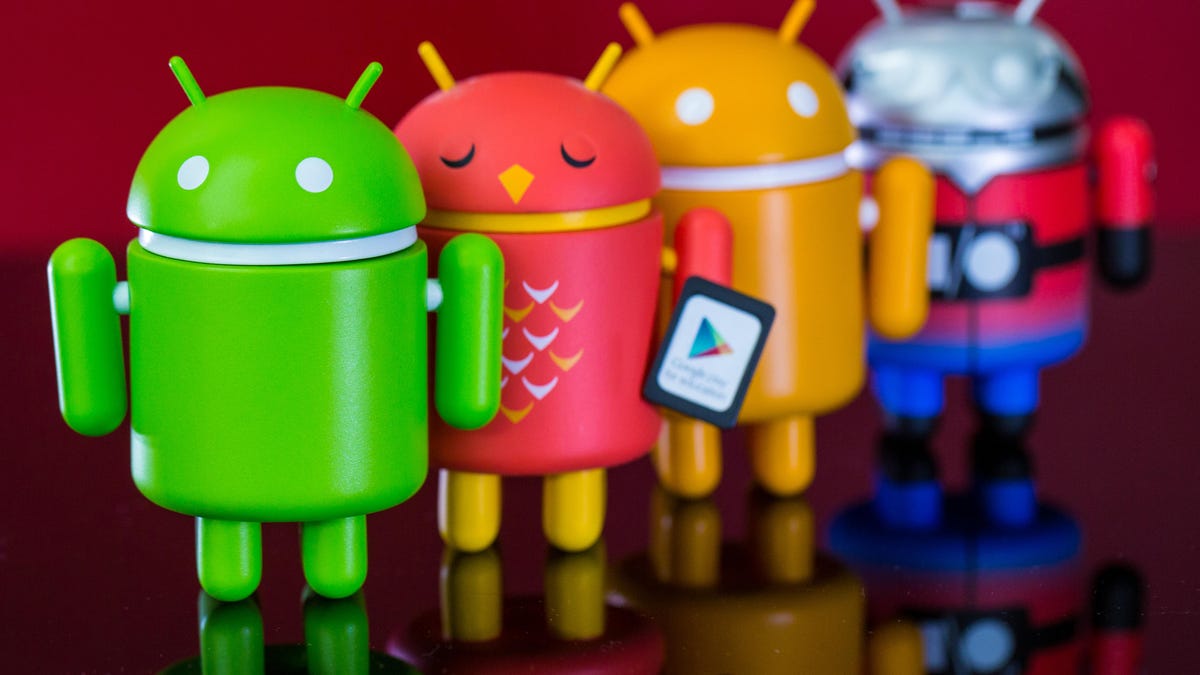3 new Android 11 privacy features are giving iOS a run for its money
Google's latest rollout takes a page from Apple's privacy playbook.

Update, Feb. 18, 2021: The Android 12 developer beta is here, and you can install it and try it out now.
Like every other mobile platform, Android has historically struggled to catch up with the iPhone's famously secure iOS features. There may still be a long way to go, but the new Android 11 developer preview shows that Google is making some headway in its latest privacy-focused features.
While you may want to avoid some of the typical roll-out bugs and bide your time until Android 11 gets its post-beta debut (usually in the third quarter of the year), here are some of the new security features that have Google fans buzzing.
Read more: Android 11: Here's when you can expect to get Google's latest update
It's the little things
"Granular control" is a catchphrase for the security-minded, and it's a feature highlighted in Android 11's app permission schema. Moving further away from "all or nothing" types of permission options, Google has put its focus on further individualizing the permissions you allow each app.
Android 11 allows you to give an app permission to do something just once (instead of Android 10's current options: always, never, and only when the app is in use). By giving an app permission to access your location, camera or microphone for a single session of app use, you can keep a check on what kind of data is being collected by your apps, and how often.
The new permission option goes hand-in-hand with an interesting development in Android 11's scoped storage -- a data privacy feature that limits any individual app's ability to look at your phone data outside of its own parameters. While some developers have complained that the feature makes apps less able to interact with each other, scoped storage aims to create a sort of digital sandbox for each app so that it doesn't interact with your other apps' data in the same way they used to.
Read more: Android 11: Here's what we know so far
Biometric boost
Not everyone is a fan of handing over their fingerprint or facial recognition data to Google, even if it's in exchange for some device-specific privacy. But for some, this biometric security is a feature that offers unbeatable peace of mind.
Android 11 is expanding your options for when you can use your Face Unlock or fingerprint to authenticate your apps and services. While we expect these options to focus on apps that need additional security, like banking and health care, we're still waiting for more details as the Developer Preview and beta stages give way to an official Android 11 version release.
What's in your wallet?
Why take your driver's license with you if you can go cashless and have a dedicated secure document vault on your phone? That's Android 11's latest pitch to the privacy-minded person on the go. Building on wallet-free apps like Google Pay, the OS' now offers new support for secure identity document storage, such as a Mobile Driving License.
We don't yet have all the details on Android 11's use of the technology, but since last December fans have been anticipating Google's latest ID accreditation feature, which is slated to work with certain phones that run Android R and Qualcomm's Snapdragon chip.
Read more: You could store a digital driver's license on your phone soon. Here's how it works
The remaining challenge
Even with these security boosts, Android has a long way to go to reach the gold standard set by Apple's iOS. Largely, that has to do with getting the most important security feature of any mobile operating system into the hands of its customer base: operating system updates. Making sure you're running the most recent version of any operating system is key to staying secure, since it essentially immunizes your phone against entire families of malware and security threats.
As CNET's Richard Nieva points out, Google hasn't released user figures for the previous version of the software, Android 10.
"But the last time Google updated its distribution numbers in May 2019, Android 9 had only been installed on 10.4% of Android phones. The three versions released before that make up 64.4 percent of Android phones. By contrast, 70% of Apple's iPhones are on the most recent version of its operating system, iOS 13," Nieva writes.
That's even more reason to look toward fall, when the official version of Android 11 is slated to start hitting phones.

